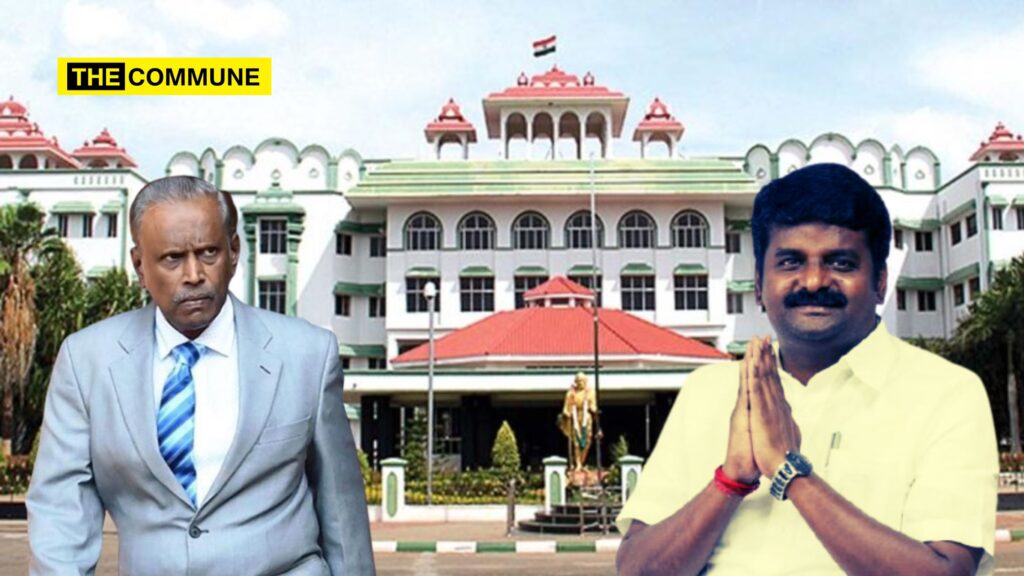In a significant development, the Madurai Bench of the Madras High Court has quashed the adverse observations made against former Tamil Nadu Health Minister Dr C Vijayabaskar in the Justice A Arumughaswamy Commission of Inquiry report dated 23 August 2022. The report, which investigated the circumstances surrounding the hospitalization and subsequent demise of former Chief Minister J. Jayalalithaa, had made scathing remarks against Dr. Vijayabaskar, holding him responsible for lapses in her medical treatment.
While delivering its judgment, the court emphasized that the commission had failed to follow the mandatory procedures under Section 8B of the Commissions of Inquiry Act, 1952, which requires that any person likely to be prejudicially affected by the inquiry must be given a reasonable opportunity to be heard. Dr Vijayabaskar, who was examined as a witness (CW-146) and not formally arrayed as a respondent, was denied this opportunity, violating natural justice.
Key Observations By The Court
Violation of Natural Justice: The court noted that the commission had made adverse findings against Dr Vijayabaskar without issuing a notice under Section 8B of the Act, which is mandatory when a person’s reputation is likely to be affected. The commission’s failure to provide him with an opportunity to defend himself rendered the findings legally untenable.
Beyond Scope of Reference: The court observed that the commission had exceeded its terms of reference by making observations on events that occurred after 5 December 2016, the date of Jayalalithaa’s demise. The commission’s report had even examined events up to 11 February 2017, which was beyond its mandate.
Ignoring Expert Evidence: The court highlighted that the commission had disregarded the findings of the AIIMS medical board, which was constituted by the Supreme Court to assist in the inquiry. The AIIMS report had given a clean chit to the medical treatment provided to Jayalalithaa, but the commission chose to ignore this expert opinion without valid reasons.
Reputation and Dignity: Citing the Supreme Court’s judgment in the State of Bihar v. Lal Krishna Advani (2003), the court reiterated that the right to reputation is an integral part of the fundamental right to life under Article 21 of the Constitution. The adverse remarks against Dr Vijayabaskar, made without due process, had caused significant harm to his reputation and political career.
Case Background
The Tamil Nadu government constituted the Justice Arumughaswamy Commission in September 2017 to investigate the circumstances leading to the hospitalization of Jayalalithaa on 22 September 2016 and her subsequent treatment until her demise on 5 December 2016. The commission examined 151 witnesses, including Dr Vijayabaskar, who was summoned as a witness in January 2019.
In its final report submitted in August 2022, the commission made strong observations against Dr Vijayabaskar, holding him responsible for not taking adequate steps to ensure Jayalalithaa’s treatment abroad and for allegedly colluding with Apollo Hospital doctors to prevent her from receiving specialized care. The commission recommended further investigation against him and others.
In his affidavit, Dr Vijayabaskar argued that the commission’s findings were based on assumptions and lacked any substantive evidence. He contended that he was never formally made a respondent in the inquiry and was denied the opportunity to present his defence, cross-examine witnesses, or adduce evidence. He also pointed out that the AIIMS report, which the commission ignored, had found no wrongdoing in the treatment provided to Jayalalithaa.
Court’s Decision
While quashing the adverse observations against Dr. Vijayabaskar, the court held that the commission’s findings were perverse, arbitrary, and contrary to the principles of natural justice. The court also stayed the operation of the Government Order (G.O. No. SS.II/500-4/2022) dated 17 October 2022, which had recommended initiating action against Dr Vijayabaskar based on the commission’s report. Dr Vijayabaskar was represented by a team of advocates, including Nithyaesh Natraj, Vaibhav R. Venkatesh, and Anirudh A. Sriram, who successfully argued that the commission’s report was flawed and violated statutory provisions.
The judgment is a significant victory for Dr Vijayabaskar, who has maintained his innocence throughout the inquiry. The court’s decision underscores the importance of adhering to due process and natural justice, especially in inquiries that can have far-reaching consequences on an individual’s reputation and career. The quashing of the adverse remarks against Dr Vijayabaskar brings closure to a contentious chapter in Tamil Nadu’s political history.
Subscribe to our channels on Telegram, WhatsApp, and Instagram and get the best stories of the day delivered to you personally.

